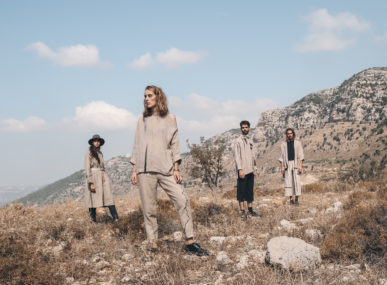The inspiration for Olistic came from Jaillant’s wide-ranging travels, which have so far taken her across Europe, North America, Africa, Asia and Australia.
Jaillant traces her brand’s overall look to her French-Swiss origins, with dresses that combine “effortless French elegance with a wild Swiss adventurous spirit.” She first conceived Olistic’s eco-friendly focus while studying fashion entrepreneurship in Australia, a country that has many sustainable clothing brands.
Olistic manufactures its range of dresses from GOTS-certified organic peace silk and PEFC / FSC-certified wood fibers. This means that all Olistic dresses can be composted after use, or recycled into a new garment.
Again, Jaillant’s travels helped shape a second aspect of Olistic’s sustainable mission — supporting female artisans. A global community of talented women produces the hand-embroidered design and shape of each Olistic dress. Jaillant sources organic fabrics handwoven by Indian women and sends these materials to Porto, where Olistic’s female tailors operate according to traditional know-how.
Importantly, Olistic prides itself on providing good employment terms. “We are redefining fashion production by better understanding our workers’ needs, and the amount of time they have to create beautiful designs,” said Jaillant.






